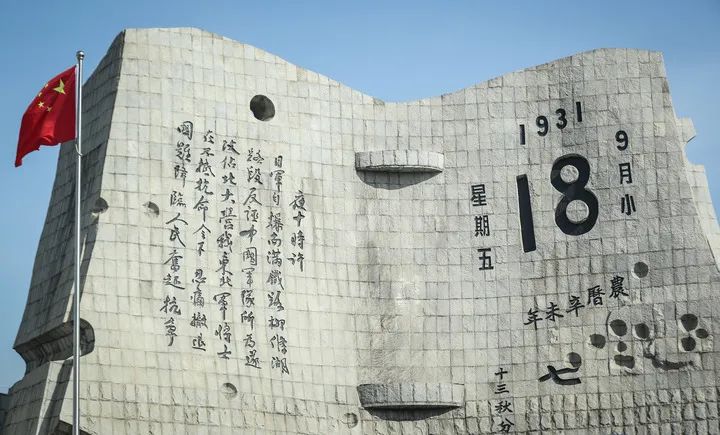“The people,” or renmin, was broadly defined in the early years of the Chinese Communist Party (CCP). At their 2nd National Congress in 1922, it included the proletariat, peasants, and even the bourgeoisie. As the CCP sought to win converts to its cause and allied itself with the rival Kuomintang (KMT) in the First United Front in a bid to end rampant warlordism that carved the country apart and caused widespread suffering, it welcomed support from all segments of society.
When the KMT broke this alliance in 1927, violently suppressing the CCP and purging leftists from its ranks, references to “the people” in CCP literature fell sharply. Members of the petit bourgeoisie and certain national minorities were seen as supporting the anti-Communist purges, engendering a suspicion of “the people” as a whole, which by its nature included many of the CCP’s enemies. According to a study of the term by Central Party School scholar Hou Zhuqing, renmin was generally replaced with minzhong (民眾) to describe the masses.

After 1935, however, renmin began to creep back into CCP talk. This was the era of the Second United Front, which saw the CCP and KMT renew their uneasy alliance to resist Japanese aggression. In the August 1 Declaration (八一宣言) of 1935, in which the struggling CCP called on the KMT to suspend hostilities and unite “the people,” renmin was featured officially. The Communists’ Soviet Workers’ and Peasants’ Republic (蘇維埃工農共和國) was also rechristened the Soviet People’s Republic (蘇維埃人民共和國) “because the Japanese invasion has changed class relations in China, and not only the petit-bourgeoisie but also the national bourgeoisie have the opportunity to take part in the anti-Japanese struggle.” The following year, the Red Army University (紅軍大學) was similarly renamed the Chinese People’s Anti-Japanese Red Army University (中國人民抗日紅軍大學).
The People, or the Enemy?
“The people,” at this point, was becoming one of the CCP’s core political concepts. Throughout the Second Sino-Japanese War (1937-1945), renmin remained a big tent, encompassing, according to the authoritative Cihai (辭海) dictionary published by the PRC, “all the classes, strata, and social groups that participated in the resistance against the Japanese invasion.”
But when hostilities between the CCP and KMT reignited in its aftermath, the definition of “the people” was narrowed: “During the War of Liberation,” explains the Cihai, “the people were all the classes, strata, and social groups that opposed imperialism, the bureaucratic bourgeoisie, the landlord class, and the reactionary faction of the Kuomintang that represented these classes.”
Even before the CCP’s ascension to power, “the people” was being redefined to describe only its followers — the antithesis, in the Manichean world of Maoist thought, of “the enemy” (敵人). The establishment of the People’s Republic in 1949 saw renmin’s parameters narrow further. The charter of the Chinese People’s Political Consultative Committee defines “the people” as “socialist laborers, builders of socialist undertakings, patriots who support socialism, and patriots who support the unity of the motherland and are committed to the great rejuvenation of the Chinese nation.”
One must fully support the Party’s rule to be one of “the people.”
It was no longer enough to oppose the CCP’s enemies — one must fully support the Party’s rule to be one of “the people.” On this understanding of the term, even campaigns that cause widespread suffering for Chinese citizens can be considered good for “the people” insomuch as they benefit those who support the same policies and campaigns.
According to the PRC constitution, “all power […] belongs to the people.” Affairs of state are “managed by the people,” representatives at all levels are elected by “the people,” and all organs of state are subject to supervision by “the people’s” representatives. Some might balk at the apparent contradiction between such enlightened proclamations and the reality of a system in which no deviation from the ruling party is brooked, but those fluent in CCP speak would be quick to point out that there is no contradiction: skeptics just don’t understand who “the people” truly are. To qualify, one must fully support the Party in all its undertakings.
If you are not one of “the people,” after all, you are one of the enemy.

Ryan Ho Kilpatrick
The CMP Dictionary
C
D
F
G
M
N
P
S
- Scaling the Wall
- Science
- Second-Generation Reds
- Security
- Seeking Progress in Stability
- Seeking Truth From Facts
- Self-Revolution
- Seven Bottom Lines
- Six Adheres
- Smart Governance
- Sneaky Visit
- So-Called
- Socialite
- Soft Resistance
- Soul and Root
- Soundless Saturation / Quietly Nourishing
- Sovereignty
- Speaking Politics
- Streamlining Services
- Strong Cyber Power